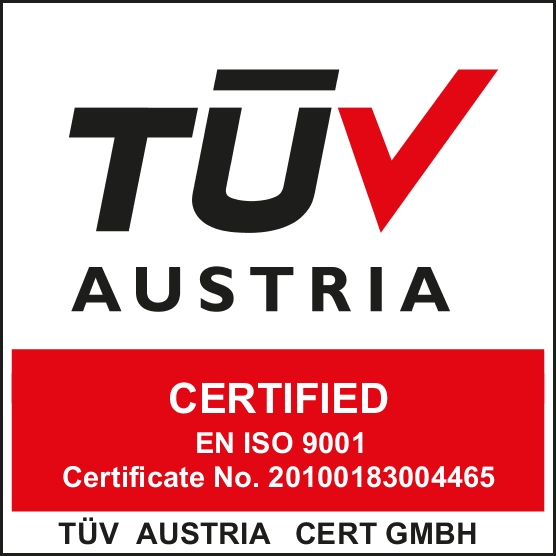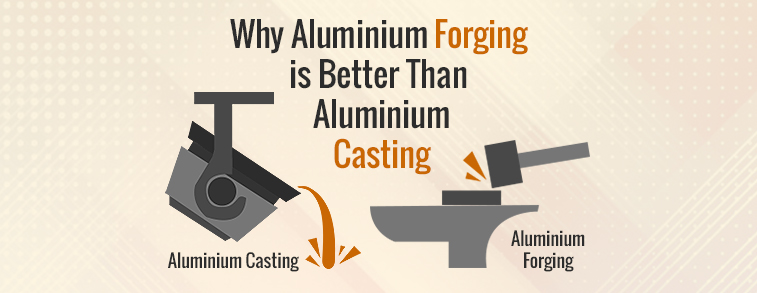- sales@indiaforging.com
- +91-98817-01007 / +91-253-2310221 / 2310275

BLOG
5 Reasons Why Aluminium Forging is Better Than Aluminium Casting

Before talking about the many advantages of aluminium forging alloys over casting, let’s understand the differences first. Forging is a manufacturing process where metal is hard-pressed and crushed under high pressure into great strength. While the usual method of forging is heating, there are some forgings produced without the heat. Forging and casting are two very diverse manufacturing methods. A material, when heated above its melting temperature and poured into a mold to solidify becomes a cast. Below are the top reasons why forging is always a better option than casting.
-
Great Strength
When treated with heat, aluminium forgings show certain mechanical properties that make their strength to weight ratio far superior than that of castings. Unlike the latter, forging is porosity-free. Which means, it allows heat treatment processes that vastly augment the selected mechanical characteristics. This greater strength goes on to show that aluminum forging can attain good strength unlike other methods. -
Lower Cost
Die forging tools are generally cheaper than die cast tooling. When there are numerous fabrications options that are feasible for certain applications, cost becomes a major deciding factor. The production rate of forging is also higher than that of casting. In highly stressed applications, there are many forgings used as against castings as they are more affordable. -
Better Lead Time
A standard forging can be manufactured in about 6-7 weeks. Today, toolmakers are introducing cost-effective technology to reduce the time frame of their production. Less time means less spend. To lessen the lead time, forging production centres usually have self-contained spaces. This in return provides them with higher regulation & control in the creation as well as revisions on a timely basis. -
Greater Surface Finish
An array of different surface finishes can be produced with forging. The surface finish of casting is not very visually appealing or smooth. However, aluminium forging makes it easy for the creation of smooth surfaces or sharper serrations. Some alloys, like 6061, have the most sought-after anti-corrosion traits sans any surface finishes. -
Enhanced Flexibility
Although not all shapes are forged, there are certain exceptions. Produced out of a die tooling designer, forging can give out surprisingly different shapes. The use of 3D modelling and drawings has also vastly increased the flexibility of the models in the early design phases. Unlike casting, where the physical size of the component may restrict flexibility in design, forged components are flexible when it comes to new design suggestions from clients.
Looking for aluminium forging manufacturers for your business? Aress High Duty Forgings is a leading manufacturer of closed die forged components in high strength Aluminium Alloys, high conductivity Coppers, Brasses and Alloy Steels.
Recent Posts
Please send us your queries or requirements on:
sales@indiaforging.com- soumil@indiaforging.com
Email:
- +91-98817-01007
- +91-253-2310221 / 2310275
Phone:
Aress High Duty Forgings Pvt. Ltd.
Address:
- E-27, MIDC, Malegaon, Sinnar, Nashik - 422103
Factory:
Unit No. 3, 1st Floor, Shivneri,
Next to Ramdas Colony Garden,
Canada Corner, Nashik - 422005


